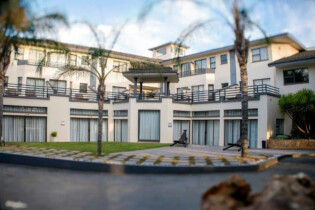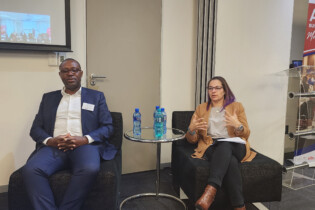“In 2013 tourism in South Africa contributed 9,5 percent to the country’s gross domestic product, translating into more than 1,4 million jobs,” says Tourism Minister Derek Hanekom.
Officially opening the annual congress of the Southern African Association for the Conference Industry (SAACI) in St Lucia in KwaZulu-Natal on Monday 18 July, Hanekom said business travel and conferencing contribute significantly to this.
“It is a well-known fact that business travel exceeds global averages for tourism spending. It represents a segment of higher end spenders and contributes greatly to breaking seasonality patterns. Add to this the positive publicity that it generates for the country, the image boost and the high level of return visits, it is clear that it contributes significantly to the economy.
“South Africa as a business events destination is fast becoming a serious contender globally. The country gained three places in the International Congress and Convention Associations’ global ranking – from 37th place in 2012 to 34th in 2013, and all indications are that we are poised to continue to gain in this ranking. South Africa is also the number one convention destination in Africa and the Middle East.
“Two South African cities – Durban and Cape Town – are ranked among the top 100 cities in the world for conventions. The 118 International Congress and Convention Association-ranked meetings that South Africa hosted last year brought over 94 000 association professionals to South Africa. It contributed an estimated R1,2 billion to the country’s economy. Add to this the further 200 000 business event delegates visiting South Africa, this sub-sector contributed some R6 billion to the economy.”
Hanekom said the Global Consumer Goods Forum to be held in South Africa in 2016 will host up to 1 000 chief executive officers and senior managers from over 400 retailers, manufacturers, and others, representing companies with combined sales worth some EUR 2.5 trillion per year.
“The immediate estimated economic impact of R11,2 million will include some 4 000 room nights spread over four conference days, excluding the spending by delegates who decide to stay longer, visit other parts of the country, or to return with their families in a year or two. This does not include the potential business and investment in our country that a conference of this kind could bring.
“It should, therefore, come as no surprise that the South African government remains fully supportive of the business events industry and well recognises the impact that it continues to have on the economy. Government welcomes the impact of business events on attracting foreign direct spend and investment, creating jobs and positively shaping perceptions about our destination around the world,” said Hanekom.
SAACI National Chairperson Zelda Coetzee said boldness is what the business events industry needs to move forward.
“Real innovation, lateral thinking and revolutionary ideas are what make modern-day winners.
“It is heartening to learn that – nationally and internationally – the economic downturn of the past few years is slowly turning the corner. I believe South Africa was fortunate in hosting the 2010 FIFA World Cup – it definitely assisted in softening the international economic slump. And besides the magnificent international exposure that our country received in hosting the best world cup ever, we are left with an incredibly upgraded infrastructure, which is serving our economy well. This all had to do with business events tourism, in the form of sports tourism, with a spin-off for leisure tourism.
“However, we are not out of the economic doldrums just yet and we have to do a lot more than just think out of the proverbial box. South Africa is celebrating 20 years of democracy this year. In business terms, and specifically business events, our honeymoon is over and we need to deliver to draw the world to our wonderful country. There are numerous other international destinations that also believe they are unique.
“We must manage the fact that we are a long-haul destination, offering potential tourists value for money and an awesome and safe destination that is easy to access – these are factors we need to concentrate on.
“We also need to proactively provide positive information about South Africa and address the negative – and in many cases incorrect facts that the small number of people who do not wish to see a progressive South Africa, communicate,” said Coetzee.







